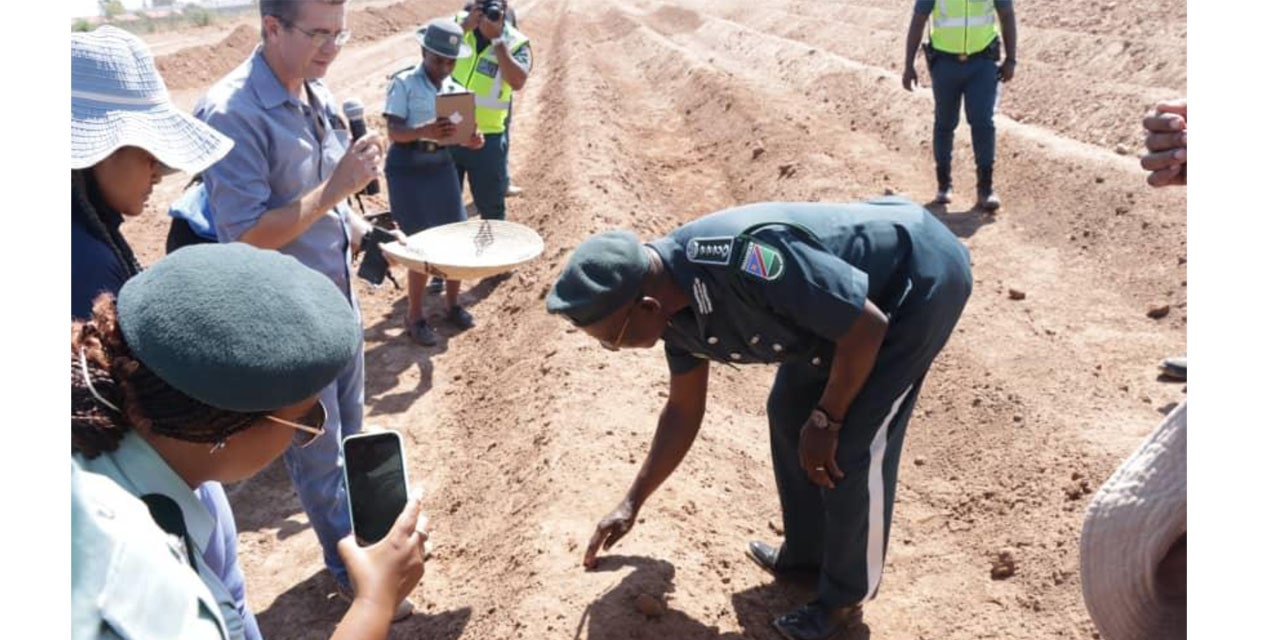Tujoromajo Kasuto
The Namibia Correctional Service (NCS) launched an integrated food production project in Mariental on Thursday, January 12, 2023, in the Hardap Region, to support the government’s efforts to scale domestic food production, develop agricultural value chains, and improve socioeconomic outcomes.
The project will design, plan, and carry out an agricultural pilot project that will produce a variety of high-value crops for local and international markets. The project is expected to cover more than 100 hectares, with the pilot phase beginning on 5 hectares.
The production is being carried out at nedersetting no. 607, a portion of the Hardap correctional facility and is also expected to boost agricultural production, boost the local economy, and pave the way for long-term self-sufficiency.
The project is further being carried out in partnership with the United Nations World Food Programme (WFP), Impact for Africa (IFA), and Lithon Project Consultants.
In addition to boosting productivity, the partners will work to improve access to markets, technology, capacity, skills, and knowledge needed to build a strong, diverse, and resilient initiative.
At the launch, NCS Commissioner-General Raphael T Hamunyela expressed gratitude to the United Nations World Food Programme for the cooperation that has existed prior to and following the signing of their Memorandum of Understanding last year.
He says that It has been a very fruitful collaboration that has been beneficial to the Namibian Correctional Service in its quest to achieve its vision, “to be Africa’s leader in the provision of correctional services”.
“I am delighted to confirm that this launch is another milestone brought about by our dedication to collaborate in contributing, not only to the Namibian Correctional Service’s mandate, which is “to provide safe, secure and humane custody of offenders, rehabilitate and reintegrate them in the community”, but also to the overall food security of the country,” he said.
Hamunyela said although food production is not a key mandate of the NCS, NCS has identified the need to impart agricultural skills for inmate rehabilitation and reintegration as well as to attain food self-sufficiency, which the NCS is performing satisfactorily.
The cooperation has other envisaged projects such as the establishment of the Kaoko-Otavi Correctional Facility.
This is a 250-hector agricultural irrigation project in the Kunene Region that aims to contribute to the country’s food security.
This project is expected to produce crops such as maize, wheat, vegetables, and animal feed, which Hamunyela says will address the current challenge of insufficient food for both humans and animals caused by the region’s persistent drought.
He further says It will also supplement Namibia’s School Feeding Program.
Other activities planned include value addition to NCS produce, poultry establishment, and seed production.




